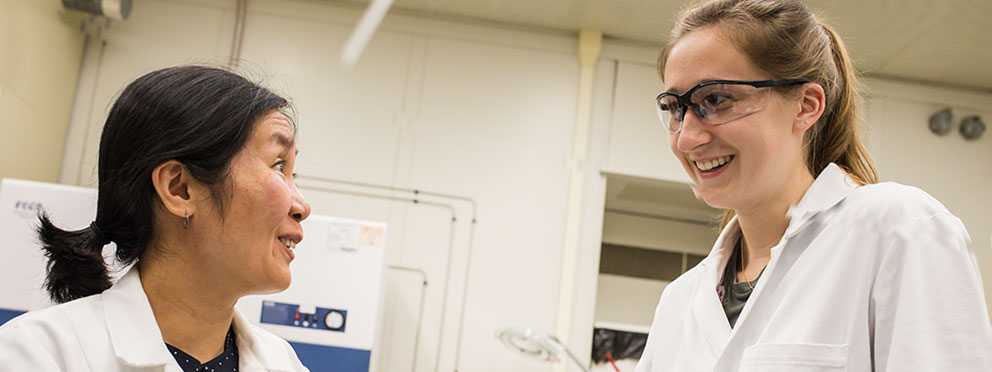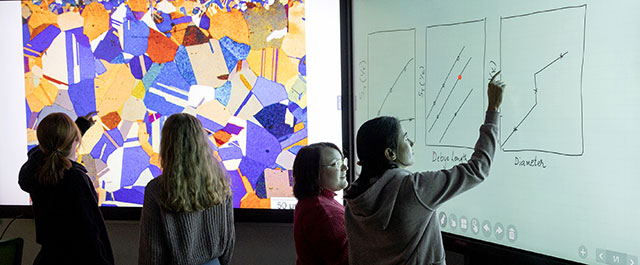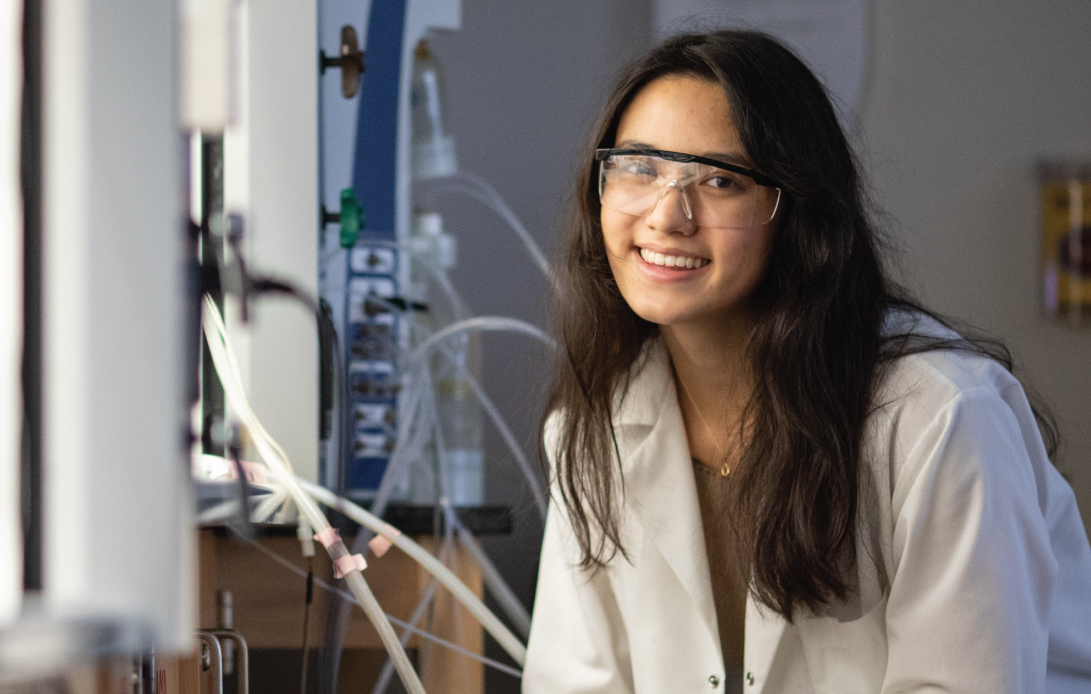Addressing the modern challenges of healthcare requires innovators who combine life and physical sciences with engineering to diagnose and treat disease more effectively and affordably. Lehigh's Bioengineering graduate program trains students to work across these disciplines -- offering diverse opportunities for advanced studies and research geared toward diagnostic and therapeutic technologies for affordable healthcare. The program's thrust areas include systems engineering approaches to healthcare, integrated devices and monitoring, and materials and platforms for novel diagnostics and therapies.
This multidisciplinary program draws faculty from a wide array of Lehigh departments, including biological sciences, chemical engineering, chemistry, computer science, electrical engineering, environmental engineering, materials science, mathematics, mechanical engineering, physics, and systems engineering.
Ongoing research conducted by faculty members represents a broad palette of research opportunities in areas such as:
- Bioelectronics
- Bioengineering Systems & Controls
- Biofluid & Solid Mechanics
- Bioinformatics
- Biomaterials
- Biomedical Image Analysis
- Biomedical Imaging
- BioMEMS
- Biomolecular & Cellular Mechanics
- Biomolecular Modeling
- Biopharmaceutical Engineering
- Biophotonics
- Biophysics
- Biosensors
- Cell & Tissue Engineering
- Computational Bioengineering
- Data Analytics
- Environmental Bioengineering
- Medical Devices
- Microfluidics
- Modeling of Biological Systems
- Molecular Bioengineering
- Neuroengineering




